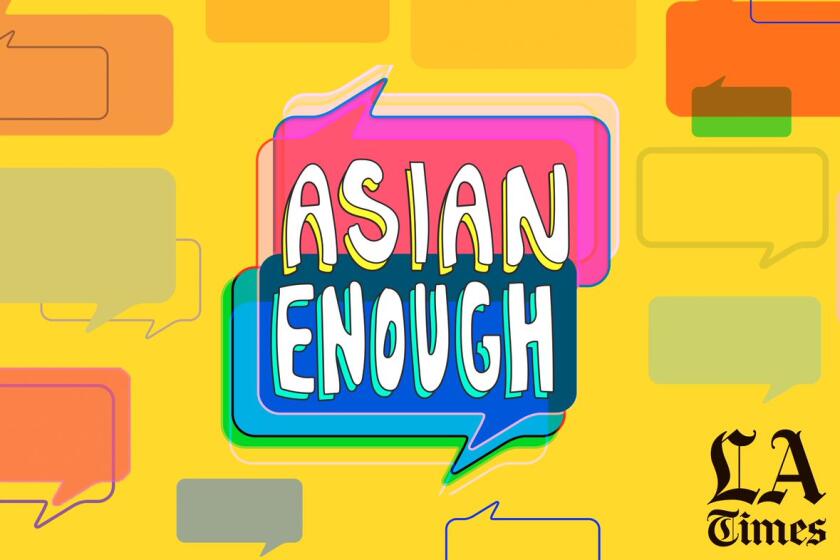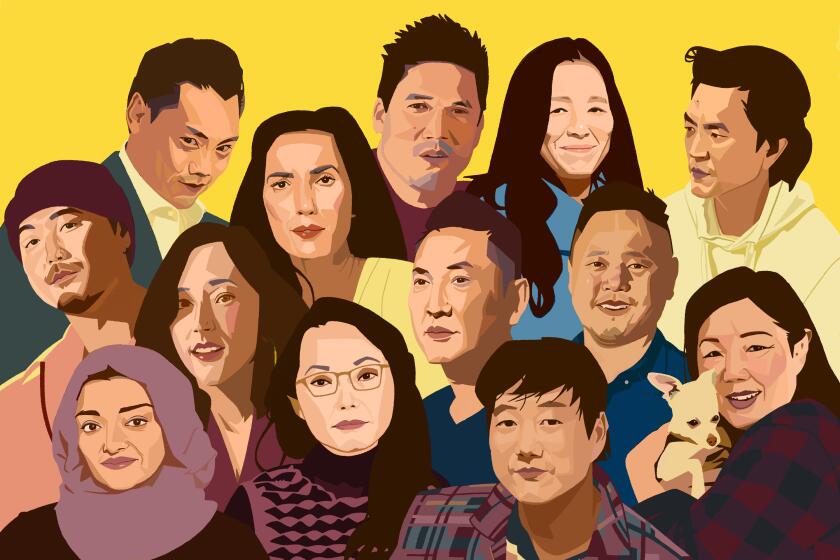Lucy Liu gets personal on fame, art and standing up for herself on the âCharlieâs Angelsâ set
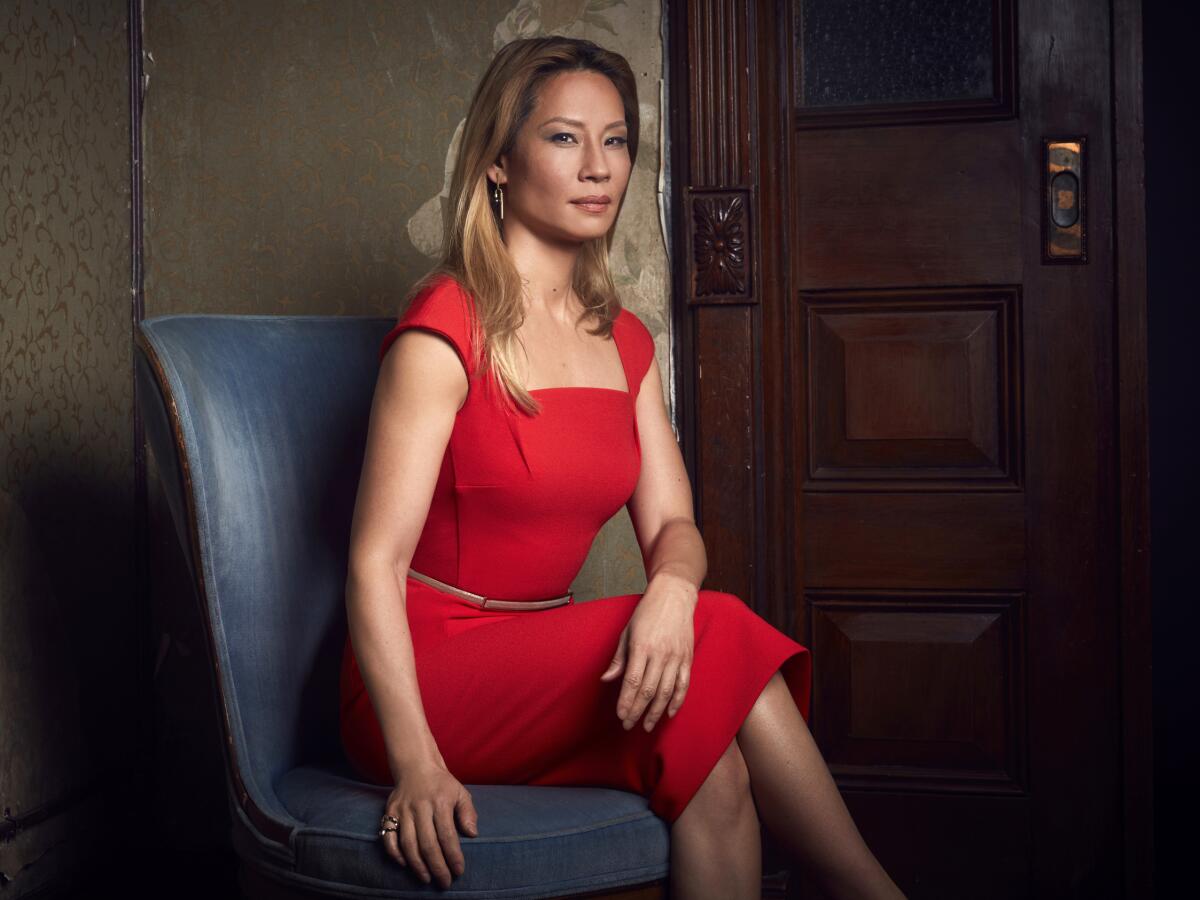
Growing up in Queens, N.Y., Lucy Liu felt like she was from another planet â until she found the arts. But when the fiercely independent daughter of Chinese immigrants set her sights on acting, she was told repeatedly she wouldnât make it in Hollywood, where opportunities for Asian American talent were scant.
âA lot of people said to me, âThereâs nobody thatâs out there. Thereâs not a lot of Asian presence in media, television, film. Youâre going to be very limited, and youâre never going to make it,ââ the Emmy-nominated actor said on a new episode of the L.A. Timesâ âAsian Enoughâ podcast. âI just thought: I donât know what that means. I donât know what âneverâ means. So letâs just try.â
Against the odds, Liu, 52, is now a household name and one of Hollywoodâs biggest Asian American stars thanks to memorable turns in television (âAlly McBeal,â âElementary,â âWhy Women Killâ) and film (âShanghai Noon,â âCharlieâs Angels,â âKill Bill Vol. 1â and the âKung Fu Pandaâ franchise) throughout a three-decade career.
She also made history: In 2000, Liu was the first Asian woman to host âSaturday Night Live,â and in 2019 she became only the second Asian American woman to get a star on the Hollywood Walk of Fame, after Anna May Wong. And thereâs plenty that people are still discovering about the creative polymath.
Liu recently segued into directing with episodes of âElementary,â âWhy Women Killâ and Marvelâs âLuke Cage.â Sheâs also a multidisciplinary visual artist who has shown her work internationally, creating along themes of connection and belonging. Her first U.S. exhibition, on display virtually at the Napa Valley Museum, is something she plans on sharing with her 5-year-old son, Rockwell, who recently learned what his mother does for a living.
If thereâs a lot left to learn about Liu, thatâs by design. âIâm not a very open person regarding my life, because I feel like sometimes when you expose yourself, people then start to mix what they see and what they know about you,â she admitted during the podcast interview. âItâs given me a lot of length in terms of how far I want to go, because nobody really knows me on a personal level.â
âAsian Enoughâ is a podcast about being Asian American, featuring conversations with special guests like Kamala Harris, Sandra Oh and Viet Thanh Nguyen.
That has not stopped Liu from speaking up about Hollywoodâs role in perpetuating anti-Asian racism and stereotypes. After her April op-ed for the Washington Post, Liu discussed some of the challenges of navigating a career and âmoving the needleâ for AAPI representation while mainstream American culture continues to otherize and sexualize Asian women.
She also opened up about a clash with co-star Bill Murray on the set of 2000âs âCharlieâs Angelsâ that recently resurfaced and went viral and how the impulse to stand up for herself is rooted in the childhood memory of seeing her mother talked down to. âI donât want to be that person that is not going to speak up for myself and stand by the only thing that I have, which is my dignity and self-respect at the end of the day.â
(This interview has been edited and condensed; listen to the full âAsian Enoughâ episode on the Times website, Apple, Spotify and other audio platforms.)
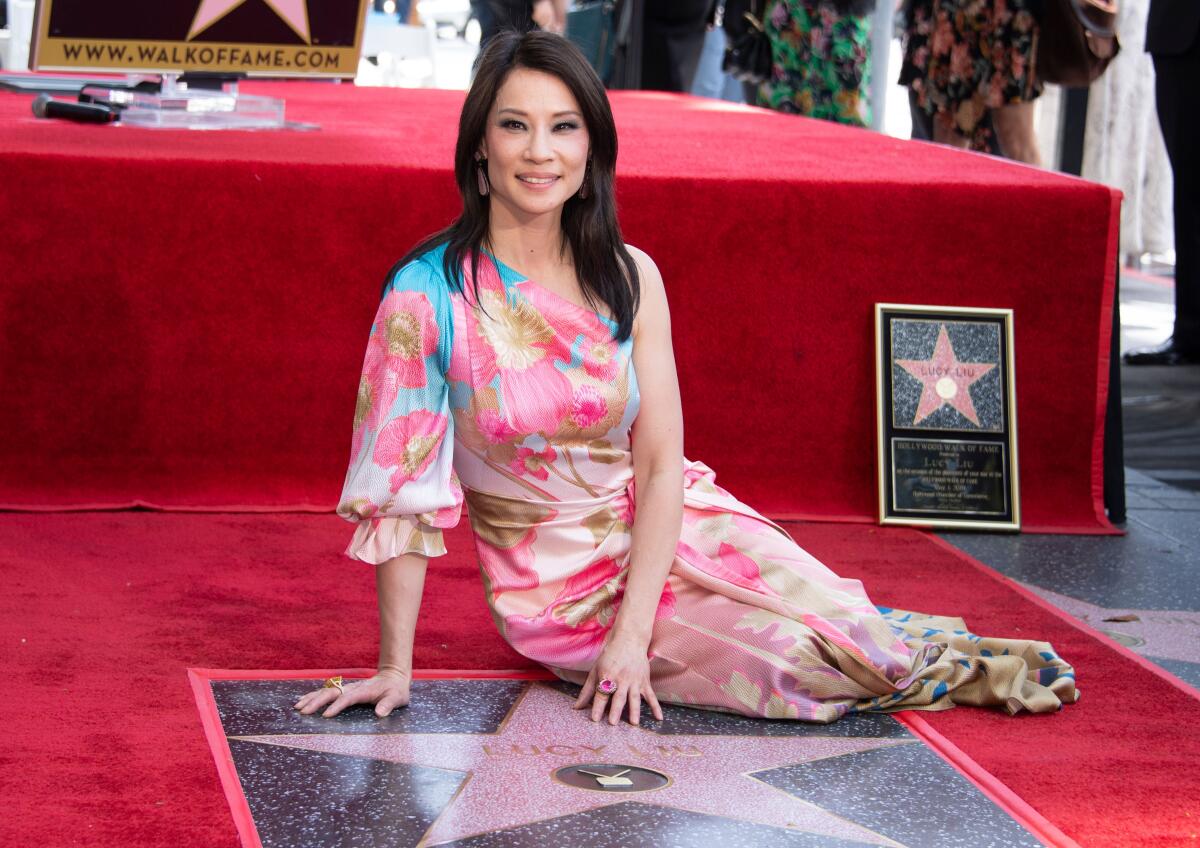
Your name is in a Destinyâs Childâs song about being an independent woman. Your off-screen life embodies that spirit. Where do you think that independence comes from?
I think I was born with it. Iâve always felt this wonderful urge to explore and be free, and I really love the idea of having that freedom creatively and as a woman, as a mom. There is something very freeing about that curiosity. And I love having people around me all the time and exploring that.
You were born and raised in Queens, N.Y. Your parents are immigrants from China. You have two older siblings. Did you always know that you wanted to be an artist â to be an actor?
When I was younger, I was intrigued by this neighbor who lived across the street who had done some commercials. I thought, âThatâs what I want to do.â I didnât know anyone in the business. I think the naivetĂŠ of not knowing anything actually helped me charge forward because I didnât know how bad rejection could be and what kind of rejection lay ahead of me. And there was plenty of rejection â but I didnât mind it because to me, it wasnât personal. It was this quest to keep moving forward and keep discovering.
A lot of people said to me: âThereâs nobody thatâs out there. Thereâs not a lot of Asian presence in media, television, film. Youâre going to be very limited and youâre never going to make it.â I just thought: I donât know what that means. I donât know what âneverâ means. So letâs just try. Itâs just one foot in front of the other. To me, the glass is always half full. I donât even see it being empty at all. I guess Iâm an optimist.
I donât know what âneverâ means â so letâs just try.
— Lucy Liu
Youâre an accomplished artist, and one of the pieces you have on exhibit is a painting of your family. Paint a picture for us of your childhood home.
We grew up in attached housing ... everyoneâs houses are connected to each other, and you can hear everything thatâs going on in everyoneâs homes and how they relate to one another. We didnât have very much money, so we grew up with whatever we grew up [with]. Itâs that idea of, you get what you get and you donât get upset. And if you do get upset, you get a mouthful of why you shouldnât be upset.
We were left to our own imagination and curiosity to do whatever we wanted. Iâm not saying it was a simpler time, but there was not the complication of technology.
There was no possibility of not attending high school and college. We didnât discuss art and theater, and we didnât do any of that because we had very limited funds. It was all about survival. And I think survival creates a very different environment than, letâs say, my child now has. It becomes a much more insular world in a way, and because of that your imagination can be bigger and it can puff out like a cloud, keep growing and absorbing.
When you talk about survival at that point in your life, it sounds like youâre talking about your parentsâ survival. Is that something that you were very conscious of as a child?
My parents worked all the time, and that was something that we absolutely knew. I think the survival, for them to be in another country and to be not speaking their main language, was something that I learned was not necessarily welcome. I remember going to the store with my mother and she was asking someone for something very basic. I remember how condescending that person was towards her, and I was so angry and felt so unable to speak.
I [wasnât] able to use my voice because I was a child, No. 1, and my mother â I wanted her to stand up to him. I knew that wasnât her personality and that was not her nature. But I was angry, because it wasnât like she was asking for anything more than some household item. I think being stifled like that also resonates as you get older and you have to break out of that pattern.
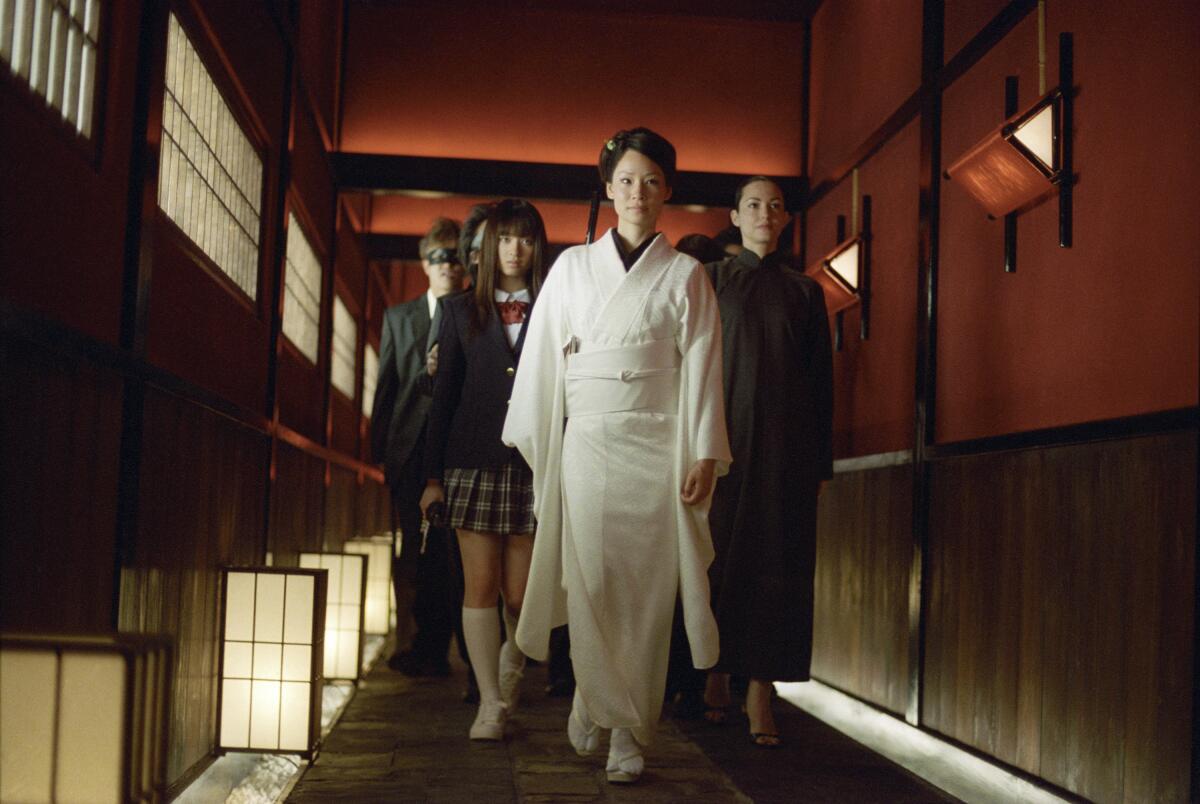
Itâs great to hear some of these more personal stories from you because a lot of people out there know you only from your work. Was this a side of yourself that you felt you had to protect from public view intentionally?
Iâm not a very open person regarding my life, because I feel like sometimes when you expose yourself, people then start to mix what they see and what they know about you. If you want to say, âShe is a bitch from âAlly McBeal,ââ OK, thatâs fine; I did my job. If you want to think, âShe can do martial arts really well from âCharlieâs Angels,ââ or she can wield a sword or whatever you want to believe, let that be what it is. I donât need them to know me in order to understand my work.
I think discovering a character is much more interesting than getting to know what this person likes to eat or who they like to date. ⌠Thatâs a very protected side of myself. And it could be cultural, absolutely. But itâs given me a lot of length in terms of how far I want to go, because nobody really knows me on a personal level.
In your Washington Post op-ed you referred to âmoving the needleâ for AAPI representation with the mainstream success you were able to find. What do you feel like it took to push the needle in the way that you were able to?
Every ounce of willpower and persistence that one can have. I think when you do move the needle, or you do interact with the people and the career that you want to go towards, you are going to be the first to get cut by the thorns and the bushes. You will also therefore be standing in front of the spotlight to be criticized and to be somewhat crucified. And you have to be OK with that.
To me, the experience of doing [the] work and the people that I interact with â thatâs what I take away. Thereâs something wonderful about it, because youâre stepping into the snow for the first time. And Iâm not alone in that. There are people that have been doing that before me, and the snow keeps coming down and then the tracks keep getting covered, but you just keep going forward.
Did you know that recently you became somewhat of a feminist icon when a story about you standing up to Bill Murray on the set of âCharlieâs Angelsâ went viral? What do you remember about that?
I feel like some of those stories are private. ... But I will say, when we started to rehearse this scene, which was all of us in the agency, we had taken the weekend to rework that particular scene and Bill Murray was not able to come because he had to attend some family gathering. So it was everyone else, and we just made the scene more fluid. I wish I had more to do with it but I didnât, because I was the last one cast and I probably had the least amount of privilege in terms of creatively participating at that time. ...
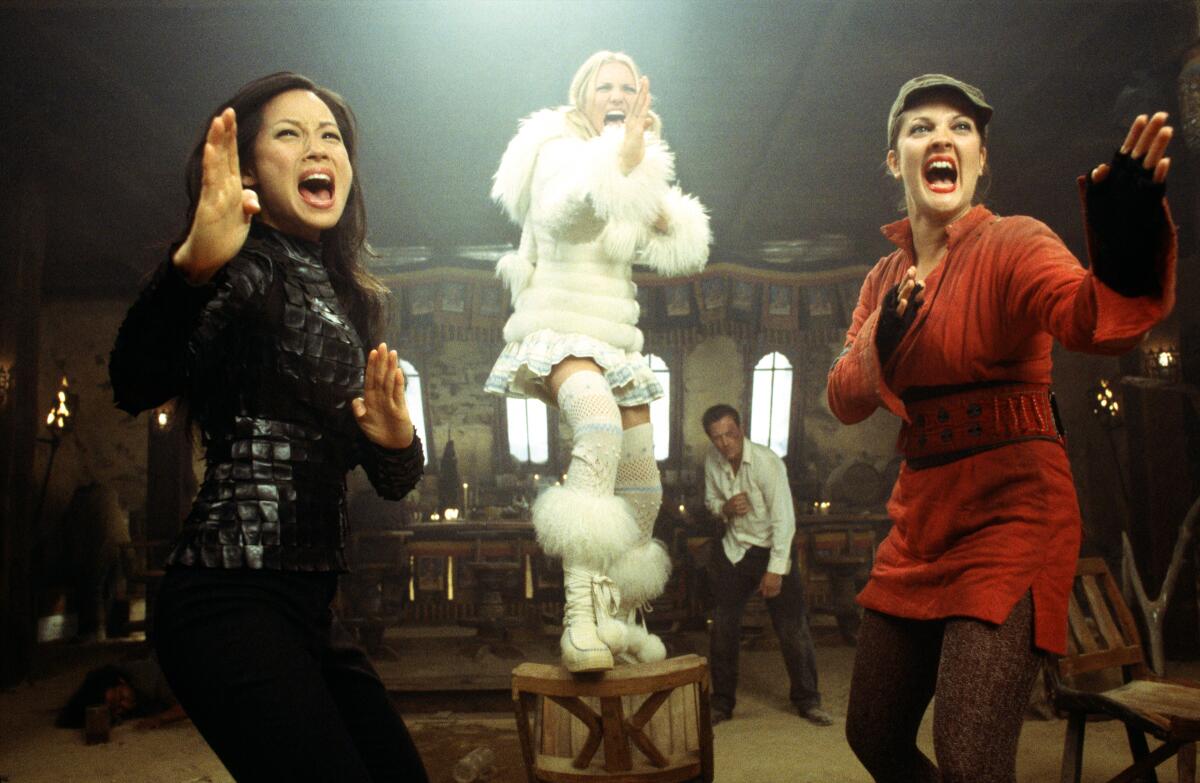
As weâre doing the scene, Bill starts to sort of hurl insults, and I wonât get into the specifics, but it kept going on and on. I was, like, âWow, he seems like heâs looking straight at me.â I couldnât believe that [the comments] could be towards me, because what do I have to do with anything majorly important at that time? I literally do the look around my shoulder thing, like, who is he talking to behind me? I say, âIâm so sorry. Are you talking to me?â And clearly he was, because then it started to become a one-on-one communication.
Some of the language was inexcusable and unacceptable, and I was not going to just sit there and take it. So, yes, I stood up for myself, and I donât regret it. Because no matter how low on the totem pole you may be or wherever you came from, thereâs no need to condescend or to put other people down. And I would not stand down, and nor should I have.
I remember years later, maybe even decades later, some crew members that I didnât even know at the time came up to me on other sets and told me that they were there at the time and they were really grateful that I did that. I have nothing against Bill Murray at all. Iâve seen him since then at a âSNLâ reunion, and he came up to me and was perfectly nice. But Iâm not going to sit there and be attacked.
I donât know if it goes back to what happened to my mom in the store. But I donât want to be that person that is not going to speak up for myself and stand by the only thing that I have, which is my dignity and self-respect. Because in the end, we all end up in the same place as time goes on. Nobody is immortal. But in that time, no matter what happens between now and whatever career choices I make or whatever life decisions I make, I will walk away with my dignity.
I remember after that time, what came out in the press was that I was this and I was that. It was incredible to me how it was turned around and they automatically thought that the woman was the difficult one. ... But I didnât understand how it got flipped when I had nothing to do with instigating it or creating that platform of confrontation or anxiety. So even though itâs been decades, itâs something that obviously I remember very intimately and have not forgotten.
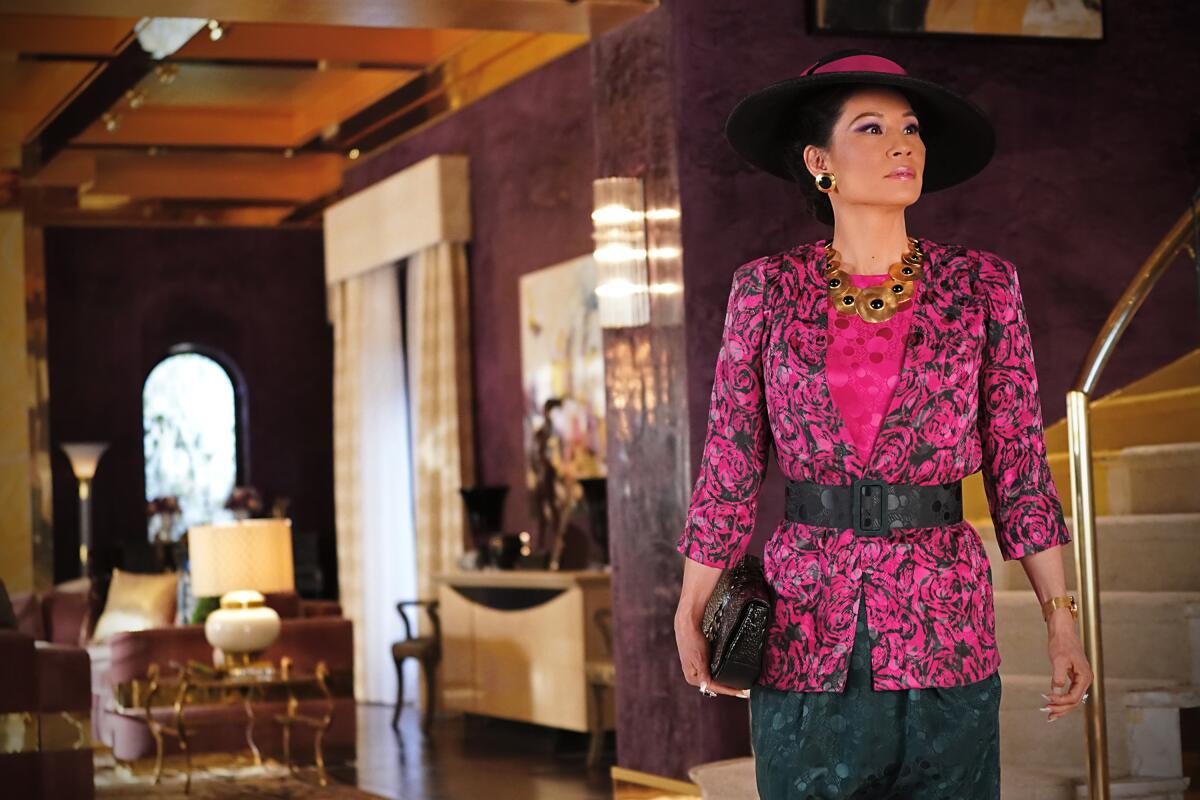
At this stage in your life, after accomplishing so much as an actor, director, an artist, what do you want your legacy to be?
I think my legacy is to stand behind my choices, regardless of whether they do well in the box office or not. Itâs about always striving to better myself as an artist and to be open to trying new things, whether they succeed or fail, and not to be afraid of that. I think that fear starts to impact your choices and it also starts to make your world smaller and tighter. I think we all feel that â you canât really breathe when that happens, your lung capacity shrinks and your brain capacity shrinks. If you get too immersed in what people want from you, you start to lose your way and you start doing things for other people instead of yourself. Itâs already hard enough to figure out on a personal level what you want for yourself.
I make choices because Iâm willing to go there and willing to fall on my face, and I think thatâs important. If you donât risk, you donât gain. And gaining should be for yourself. Itâs like a slow climb. And I do think slow and steady wins the race.
âAsian Enoughâ is a podcast about being Asian American â with guests like John Cho, Lulu Wang, Mina Kimes, Margaret Cho and Padma Lakshmi.
More to Read
Only good movies
Get the Indie Focus newsletter, Mark Olsen's weekly guide to the world of cinema.
You may occasionally receive promotional content from the Los Angeles Times.
